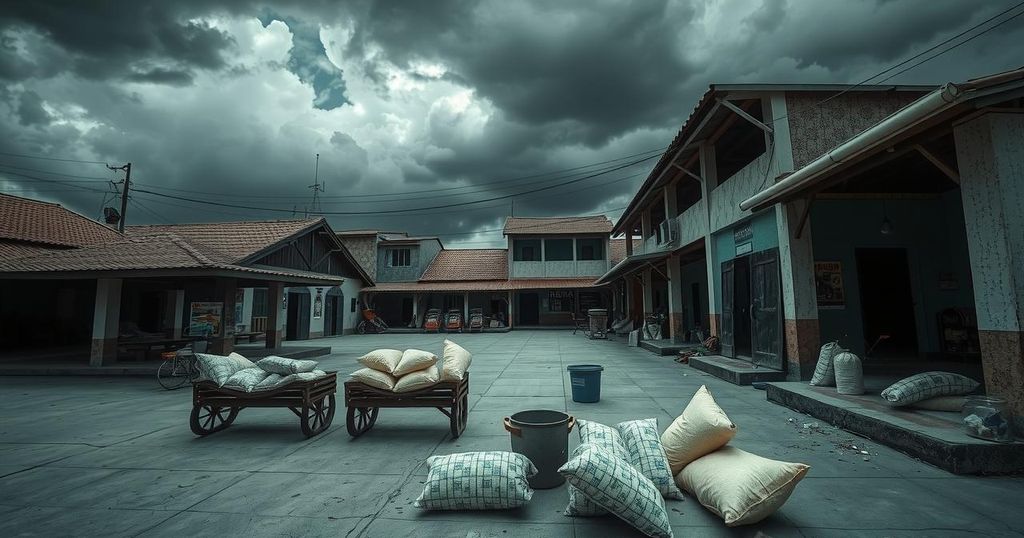Climate change
economics
AFRICA, CLIMATE CHANGE, COMOROS, CONSUMER FEDERATION OF THE, CONSUMER FEDERATION OF THE COMOROS, EUROPE, FEDERATION, FOOD SECURITY, FRANCE, INDIAN OCEAN, INFLATION, MAHAMOUD SALIM HAFI, MAYOTTE, MORONI, NAS, NASRA MOHAMED ISSA, NORTH AMERICA, OCEAN, PARIS, RF, RFI, UNITED STATES
Jamal Walker
0 Comments
Public Discontent in Comoros Amid Rising Living Costs and Energy Crisis
Residents of Comoros face increasing anger due to high living costs and energy shortages. The government has announced measures to address these issues, including tax breaks and financial support for essential goods. However, implementation has been slow, leading to public dissatisfaction. Rising reliance on money transfers from the diaspora is evident, while authorities urge patience as they work to resolve water and energy crises.
The Indian Ocean nation of Comoros is experiencing intensified anger among residents due to surging living costs and a debilitating energy crisis as Ramadan approaches. The government has recently introduced measures purportedly aimed at mitigating these financial strains, which particularly affect the predominantly Sunni Muslim population during this significant month of fasting. Key initiatives include tax breaks, a 6 billion Comorian franc fund for essential imports, and an effort to bolster electricity supply.
Despite these actions, the Consumer Federation of the Comoros expressed concerns over the slow implementation of these measures, indicating that crucial items such as oil, sugar, and flour continue to rise in price. Nasra Mohamed Issa, the federation’s president, emphasized the mismatch between government pledges and real-life outcomes, stating, “The measures announced are all well and good, but they are not being implemented.”
Many Comoros residents have resorted to relying on financial support from relatives living abroad to alleviate their struggles, as evidenced by a significant rise in money transfers for the period leading into Ramadan. Reports indicate that these transfers surged from 59 million to 135 million Comorian francs, showcasing the increased dependency on diaspora contributions.
In the face of ongoing challenges such as power outages and water shortages, the government urged patience among citizens. Mahamoud Salim Hafi, deputy secretary-general, reassured the public of upcoming improvements regarding water supply and announced that the government had fixed prices in agreement with the private sector. However, issues with fuel quality persist, prompting further discussions with the Transporters’ Union regarding its impact on transportation reliability.
The prevailing crisis in Comoros reflects a complex interplay of rising living costs and energy shortages during a critical period for the Muslim community. Despite governmental assurances of support through measures and price regulations, the gap between promises and execution has led to heightened public discontent. As Comoros navigates these challenges, reliance on international support and diaspora contributions continues to play a crucial role in alleviating hardships among its citizens.
Original Source: www.rfi.fr




Post Comment